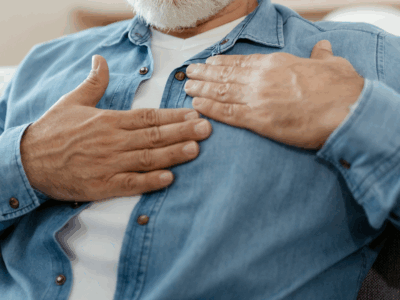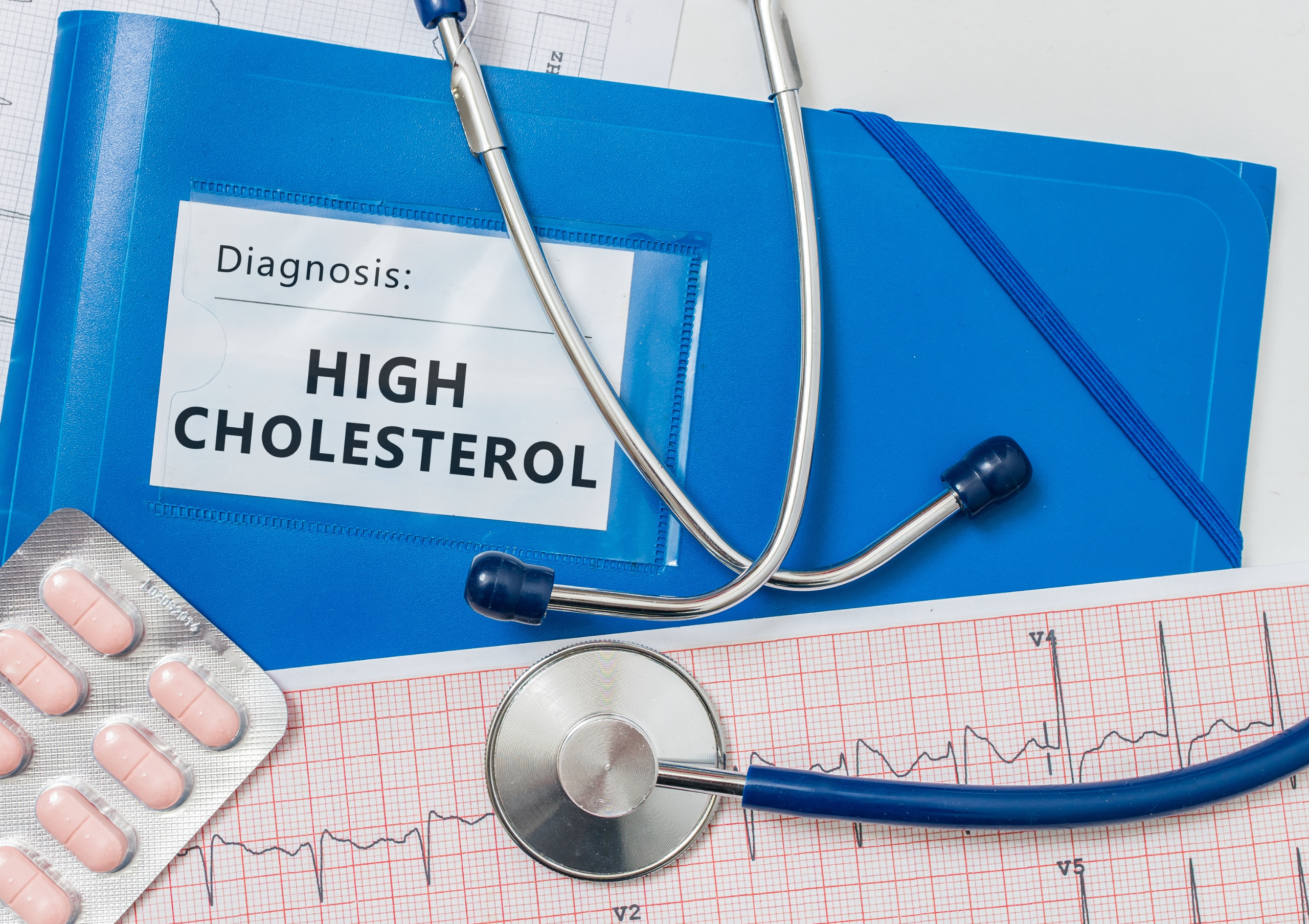Chest pain can be scary—especially when it seems to come out of nowhere. Maybe you’re sitting at your desk, relaxing at home, or even in the middle of a good night’s sleep when a sudden tightness, twinge, or stabbing ache grabs your attention. The first thought for many people is the heart. After all, chest pain is often linked with heart disease, and we’re all taught to take it seriously. But the truth is, not all chest pain comes from the heart.
So, what might cause random chest pain? Let’s walk through some of the most common reasons, how to tell them apart, and when you should get checked by a doctor.
Why Chest Pain Feels So Urgent
The chest houses some of the most important organs in the body—your heart, lungs, and part of your digestive system. Because these structures are so close together, pain can be tricky to pinpoint. A sharp sensation might come from a pulled muscle, indigestion, or even stress—but it can also be a warning sign of a serious heart issue.
That overlap is why doctors always recommend taking unexplained chest pain seriously, especially if it’s sudden, severe, or comes with other symptoms like shortness of breath, sweating, dizziness, or pain spreading to the arm or jaw.
Common Causes of Random Chest Pain
1. Heart-Related Causes
Even though not all chest pain is cardiac, the heart is the first place to look. Some possible causes include:
- Angina – This happens when the heart muscle doesn’t get enough blood flow. It usually feels like pressure or squeezing, often triggered by activity or stress.
- Heart Attack – Caused by a blocked artery, heart attack pain is often described as crushing, heavy, or radiating. It can occur suddenly and doesn’t always follow exertion.
- Pericarditis – Inflammation of the sac around the heart, which can cause sharp or stabbing pain that worsens when lying down.
- Arrhythmias – Abnormal heart rhythms sometimes cause chest discomfort, palpitations, or a fluttering feeling.
Because these conditions can be life-threatening, it’s always wise to rule them out first.
2. Digestive System Causes
Believe it or not, your digestive tract can be behind sudden chest discomfort:
- Acid Reflux/GERD – Stomach acid backing up into the esophagus can mimic heart pain. Many people describe it as burning, worse after meals or when lying down.
- Esophageal Spasms – Sudden, intense contractions of the esophagus may feel like squeezing chest pain.
- Gallbladder Issues – Gallstones or inflammation can cause upper abdominal pain that radiates into the chest.
3. Lung-Related Causes
The lungs sit right behind the ribcage, so problems here often create chest pain:
- Pulmonary Embolism – A blood clot in the lungs can cause sudden sharp pain, shortness of breath, and rapid heartbeat. This is a medical emergency.
- Pneumonia – Infection in the lungs may cause pain that worsens with deep breaths or coughing.
- Pleurisy – Inflammation of the lung lining creates sharp, stabbing pain with breathing or coughing.
4. Musculoskeletal Causes
Sometimes chest pain has nothing to do with the heart or lungs—it’s the muscles and bones around them.
- Muscle Strain – Overexertion, heavy lifting, or even bad posture can pull chest wall muscles. Pain may worsen with movement or touch.
- Costochondritis – Inflammation of the cartilage connecting the ribs to the breastbone often feels like sharp, localized pain.
- Injuries – A fall, car accident, or sports injury can bruise or fracture ribs, leading to sudden discomfort.
5. Anxiety and Stress
The mind and body are closely connected. Anxiety or panic attacks can trigger chest tightness, a racing heartbeat, and shortness of breath that mimic heart issues. Stress hormones like adrenaline can cause muscle tension and even acid reflux, both of which show up as chest pain.
6. Other Possible Causes
- Shingles – A viral infection that causes burning or sharp pain before a rash appears.
- Hiatal Hernia – When part of the stomach pushes into the chest cavity, it can cause pressure or pain.
- Unexplained Episodes – Occasionally, chest pain has no clear cause and resolves on its own. Still, it’s best to investigate.
How to Tell if It’s Serious
While only a doctor can give a definitive answer, here are some red flags that chest pain may require emergency care:
- Pain feels crushing, heavy, or like pressure in the center of the chest.
- Pain spreads to the jaw, neck, shoulder, or arm.
- Pain is accompanied by sweating, nausea, dizziness, or shortness of breath.
- Pain occurs suddenly during rest or wakes you from sleep.
- You have a history of heart disease, high blood pressure, diabetes, or smoking.
If any of these apply, call 911 or seek immediate medical help. It’s always better to be safe.
What to Do if You Experience Random Chest Pain
- Pause and Evaluate – Take note of what you were doing, how long the pain lasted, and whether anything made it better or worse.
- Check Other Symptoms – Are you dizzy, sweaty, short of breath, or nauseous? Those could point to heart issues.
- Consider Lifestyle Factors – Did you just eat a large meal? Were you lifting something heavy? Feeling anxious?
- Don’t Ignore It – Even if the pain goes away, recurring or unexplained chest pain should always be checked by a professional.
How Doctors Diagnose Chest Pain
At Advanced Cardiovascular Specialists, we often see patients who come in worried about chest pain that seemed random. To get answers, doctors may use:
- Medical History & Exam – Questions about your symptoms, lifestyle, and family history.
- Electrocardiogram (ECG/EKG) – Checks for heart rhythm problems.
- Blood Tests – Detect heart damage or inflammation.
- Imaging – X-rays, echocardiograms, or CT scans to see the heart and lungs.
- Stress Tests – Measure how your heart responds to exertion.
These tools help separate dangerous causes from less serious ones so you can get the right treatment.
When It’s Not Your Heart
It’s worth noting that most people who visit the ER with chest pain don’t end up having a heart attack. According to the American Heart Association, chest pain is a major warning sign, but digestive, lung, and musculoskeletal issues account for a large portion of cases. The important thing is not guessing—you want to know for sure.
Protecting Your Heart Health
Even if your chest pain turns out to be something minor, it can still be a wake-up call to check in on your heart health. Here are some steps to keep your heart strong:
- Eat a balanced diet rich in fruits, vegetables, lean proteins, and whole grains.
- Stay active with regular exercise—aim for 150 minutes of moderate activity per week.
- Don’t smoke, and limit alcohol use.
- Keep blood pressure, cholesterol, and blood sugar under control.
- Manage stress with healthy habits like sleep, meditation, or spending time outdoors.
- Schedule regular check-ups with your doctor.
Final Thoughts
Random chest pain can have many different causes—from acid reflux to pulled muscles to serious heart conditions. Because the symptoms can overlap, it’s never something to ignore. If you experience sudden or unexplained chest pain, especially with other symptoms, seek medical attention right away.
At Advanced Cardiovascular Specialists, our team is here to help you understand what’s happening, get the right diagnosis, and protect your heart health for the long term. Contact us today if you are a loved one is experiencing random chest pain.


 How High Cholesterol Affects the Function of the Heart
How High Cholesterol Affects the Function of the Heart 